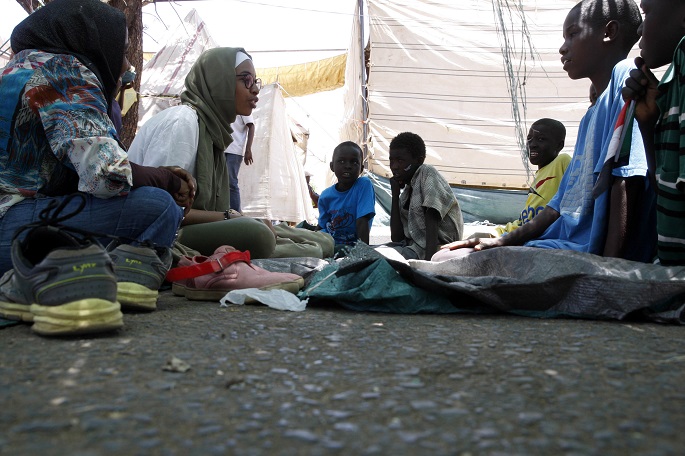Record people facing critical food lack in South Sudan
Published : 15 Jun 2019, 03:45
The number of people facing a critical lack of food in South Sudan is reaching its record peak, three United Nations agencies warned on Friday.
An estimated 6.96 million South Sudanese will face acute levels of food insecurity or worse by the end of July, according to the Integrated Food Security Phase Classification (IPC) update released on Friday by the government of South Sudan in collaboration with the Food and Agriculture Organization (FAO) of the United Nations, the United Nations Children's Fund (UNICEF) and the World Food Programme (WFP).
An estimated 21,000 people will likely face a catastrophic lack of food access, while about 1.82 million will face emergency and another 5.12 million people will face crisis levels of food insecurity.
The ongoing lean season started early following record low stocks from the poor 2018 harvest and has been further extended by the delayed onset of 2019 seasonal rains.
High food prices caused by last year's poor harvests, market disruptions due to insecurity, high transport costs and a depreciated currency are also contributing to the high levels of acute food insecurity, according to a report jointly undertaken by the parties.
The effective implementation of the peace agreement and political stability are imperative to allow urgent and scaled-up humanitarian assistance to protect livelihoods and boost agricultural production across the country to save lives, the report said.
"With greater stability in the country, access to those in need has improved, allowing us to treat more than 100,000 children suffering from severe malnutrition in the first five months of the year, with more than 90 percent of those children recovering," said Mohamed Ag Ayoya, UNICEF's representative in South Sudan.
FAO is providing new varieties of seeds suited to local conditions and training in techniques that will reduce losses from drought and flooding, while UNICEF and partners will further scale up services during the lean season to reach more children affected by severe acute malnutrition, expanding its programming through two key methods.
As part of its response, WFP will provide up to 5.4 million people with a variety of support including life-saving food and cash distributions in areas with working markets, food in return for work on the construction and rehabilitation of community assets, food for school meals, and special products for the prevention and treatment of malnutrition among children, and pregnant or nursing women.
WFP has prepositioned 173,000 metric tons of food in more than 60 areas before the onset of the rainy season, 66,000 metric tons more than the same time in 2018. Pre-positioning not only helps to save lives but reduces delivery costs.


